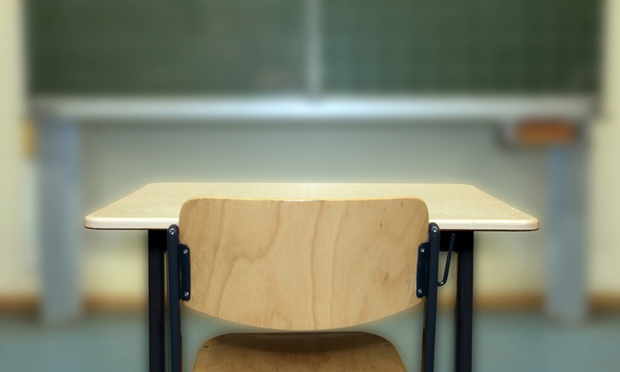The Negative Impact Of School Suspensions On Student Outcomes

Table of Contents
Academic Disadvantage Caused by School Suspensions
School suspensions directly translate to lost learning time. The days missed due to suspension represent valuable instructional hours that students cannot recover, creating a significant academic disadvantage. This lost time significantly impacts a student's ability to keep pace with their peers, leading to a decline in grades, lower standardized test scores, and ultimately, a reduced chance of achieving their full educational potential.
- Increased risk of falling behind peers: Missing even a few days of school can disrupt a student's learning trajectory, making it difficult to catch up on missed assignments and concepts. This cumulative effect can lead to a significant gap in academic performance.
- Difficulty catching up on missed material: The structure and pace of the school curriculum often make it challenging for suspended students to independently catch up. They may lack access to resources or support needed to bridge the knowledge gap.
- Higher dropout rates among frequently suspended students: Students who experience repeated suspensions are more likely to become disengaged from school, leading to increased absenteeism and ultimately, dropping out before graduation. This significantly limits their future educational attainment and career opportunities.
- Negative impact on college applications and future educational opportunities: A history of suspensions can negatively impact college applications and scholarship opportunities, further hindering educational advancement. Low grade point average (GPA) and poor performance on standardized testing, often consequences of suspensions, reinforce this negative trend.
Research consistently shows a strong correlation between school suspensions and decreased academic achievement. Studies have documented lower GPA scores, reduced standardized testing performance, and lower rates of high school graduation among frequently suspended students. These findings underscore the urgent need for a reevaluation of current disciplinary practices.
Social-Emotional Impact and the Cycle of Suspension
Beyond the academic repercussions, school suspensions inflict significant damage on students' social-emotional well-being. The experience of being removed from the school environment can be incredibly isolating and alienating, often contributing to feelings of anger, resentment, and hopelessness. This can trigger a negative cycle: suspension leads to increased behavioral problems, which then lead to further suspensions.
- Increased behavioral problems after returning to school: The disruption caused by suspension can make it difficult for students to reintegrate into the school environment, often leading to increased behavioral issues.
- Difficulty forming positive relationships with teachers and peers: Suspensions can damage trust and rapport with teachers and peers, hindering the development of positive social relationships crucial for academic and personal success.
- Higher rates of depression and anxiety: The emotional trauma associated with suspension can contribute to increased rates of depression, anxiety, and other mental health challenges.
- Potential for escalation into more serious offenses: For some students, suspension can exacerbate existing behavioral issues, increasing the likelihood of involvement in the juvenile justice system. This highlights the interconnectedness of school discipline and the broader social context.
The impact on social-emotional learning (SEL) is profound, often leading to a vicious cycle that perpetuates negative behaviors and hinders a student's overall development. The lack of adequate support systems during and after suspension exacerbates these challenges, emphasizing the need for comprehensive interventions.
Long-Term Consequences and the Need for Alternative Disciplinary Approaches
The consequences of school suspensions extend far beyond the school years. Students with a history of suspension face significantly increased risks of unemployment, incarceration, and reduced earning potential. These long-term effects disproportionately affect marginalized groups, further perpetuating cycles of poverty and inequality.
- Increased likelihood of unemployment and incarceration: Research has consistently linked school suspensions with higher rates of unemployment and incarceration in adulthood.
- Reduced earning potential: The cumulative effect of lower educational attainment, limited job prospects, and a criminal record severely limits earning potential.
- The importance of equity and inclusion in school discipline: Addressing the disproportionate impact of suspensions on marginalized groups requires a commitment to equity and inclusion in school discipline.
- Examples of successful alternative disciplinary strategies: Restorative justice practices, positive behavior interventions and supports (PBIS), and conflict resolution programs have proven effective in creating more positive and inclusive school climates.
Therefore, we must advocate for a shift away from punitive disciplinary measures and toward alternative disciplinary approaches that prioritize restorative justice, positive behavior interventions and supports (PBIS), and focus on addressing the root causes of misbehavior. These strategies promote positive school climates, fostering a sense of belonging and improving school-wide discipline.
Conclusion: Rethinking School Suspensions for Better Student Outcomes
This article has outlined the significant detrimental effects of school suspensions on student academic performance, social-emotional well-being, and long-term prospects. The data clearly demonstrates that suspensions are not an effective disciplinary strategy and often exacerbate existing inequalities. We must move away from a punitive approach towards school discipline and instead embrace alternative strategies that support positive behavior, address the root causes of misbehavior, and create inclusive learning environments for all students. Reducing school suspensions and improving school discipline requires a collaborative effort. Learn more about alternative disciplinary strategies such as restorative justice and PBIS, and advocate for changes in your schools and communities to create supportive and inclusive learning environments where every student has the opportunity to thrive. Let's work together to create a future where all students have a chance to reach their full potential—a future where improving school discipline means improving school climates and reducing school suspensions for better student outcomes.

Featured Posts
-
 Cincinnati Defeats Lady Raiders At Home In Close 59 56 Matchup
May 02, 2025
Cincinnati Defeats Lady Raiders At Home In Close 59 56 Matchup
May 02, 2025 -
 Six Nations 2025 Assessing Scotlands Rugby Capabilities
May 02, 2025
Six Nations 2025 Assessing Scotlands Rugby Capabilities
May 02, 2025 -
 Ethniki Stratigiki P Syxikis Ygeias 2025 2028 Odigos Gia Tin Ylopoiisi Tis
May 02, 2025
Ethniki Stratigiki P Syxikis Ygeias 2025 2028 Odigos Gia Tin Ylopoiisi Tis
May 02, 2025 -
 Xrp Ripple Price Prediction Should You Buy Below 3
May 02, 2025
Xrp Ripple Price Prediction Should You Buy Below 3
May 02, 2025 -
 Kampen Start Kort Geding Tegen Enexis Voor Stroomnetaansluiting
May 02, 2025
Kampen Start Kort Geding Tegen Enexis Voor Stroomnetaansluiting
May 02, 2025
Latest Posts
-
 Macron Intensifie La Pression Sur Moscou Nouvelles Sanctions A Venir
May 03, 2025
Macron Intensifie La Pression Sur Moscou Nouvelles Sanctions A Venir
May 03, 2025 -
 La Seine Musicale 2025 2026 Guide Des Spectacles Pour Familles
May 03, 2025
La Seine Musicale 2025 2026 Guide Des Spectacles Pour Familles
May 03, 2025 -
 Planifier Votre Visite A La Seine Musicale 2025 2026
May 03, 2025
Planifier Votre Visite A La Seine Musicale 2025 2026
May 03, 2025 -
 La Seine Musicale Concerts Danse Et Cinema Saison 2025 2026
May 03, 2025
La Seine Musicale Concerts Danse Et Cinema Saison 2025 2026
May 03, 2025 -
 Decouvrez La Saison Culturelle De La Seine Musicale 2025 2026
May 03, 2025
Decouvrez La Saison Culturelle De La Seine Musicale 2025 2026
May 03, 2025
